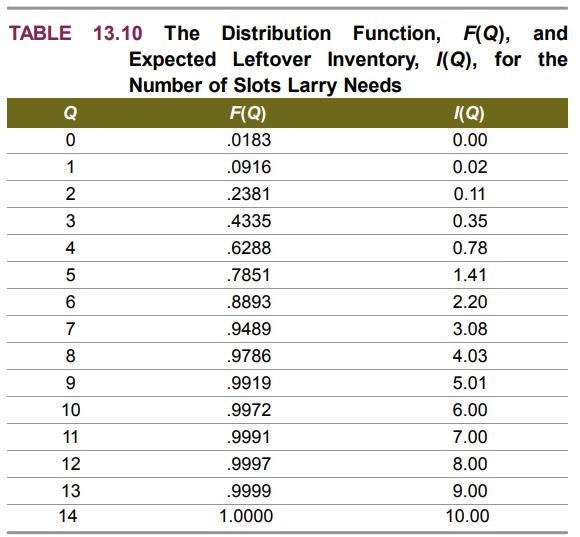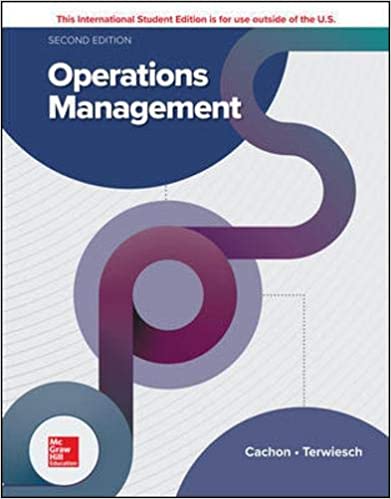Share&Care is a nonprofit car-share company that rents cars. When customers make a reservation, they specify their
Question:
Share&Care is a nonprofit car-share company that rents cars. When customers make a reservation, they specify their pickup time and the number of time slots they will hold the vehicle, where each time slot equals 15 minutes.
For example, if the pickup time is 1 p.m., then possible drop-off times are 1:15 (one slot), 1:30 (two slots), and so on. Share&Care charges $1.50 for each time slot in the reservation. To discourage customers from returning the rented cars beyond their drop-off time, it charges $20 per time slot used beyond the drop-off time. For example, if a customer’s drop-off time is 2:30 and he returns the vehicle at 2:47, then he is charged $40 for the two time slots he used beyond his reservation (and, of course, $1.50 per slot that he reserved). Larry runs a small business that makes deliveries on Fridays. To ensure availability of a car, he books his car two days in advance. However, he doesn’t know his exact needs when he books. Table 13.10 provides information regarding Larry’s demand (in terms of slots). For example, if he needs five slots but booked four slots, then he uses the car for five slots, for a total charge of (4 × $1.50) + $20 = $26. If he ends up booking the car for more time than he needs, the extra time on the car has no value to him.

a. Suppose Larry books the car for two time slots. How likely is he to pay $40 or more in late fees?
b. To minimize his rental costs, how many time slots should Larry reserve?
c. Suppose Larry books the car for five time slots. How many time slots can he expect to waste (i.e., they end up being of no use to him)?
d. Larry hates paying any late penalty fee. Suppose he wants to be 99.9 percent sure that he will not have to pay a late fee. How many slots should he book?
Step by Step Answer:

Operations Management
ISBN: 9781260547610
2nd International Edition
Authors: Gerard Cachon, Christian Terwiesch





